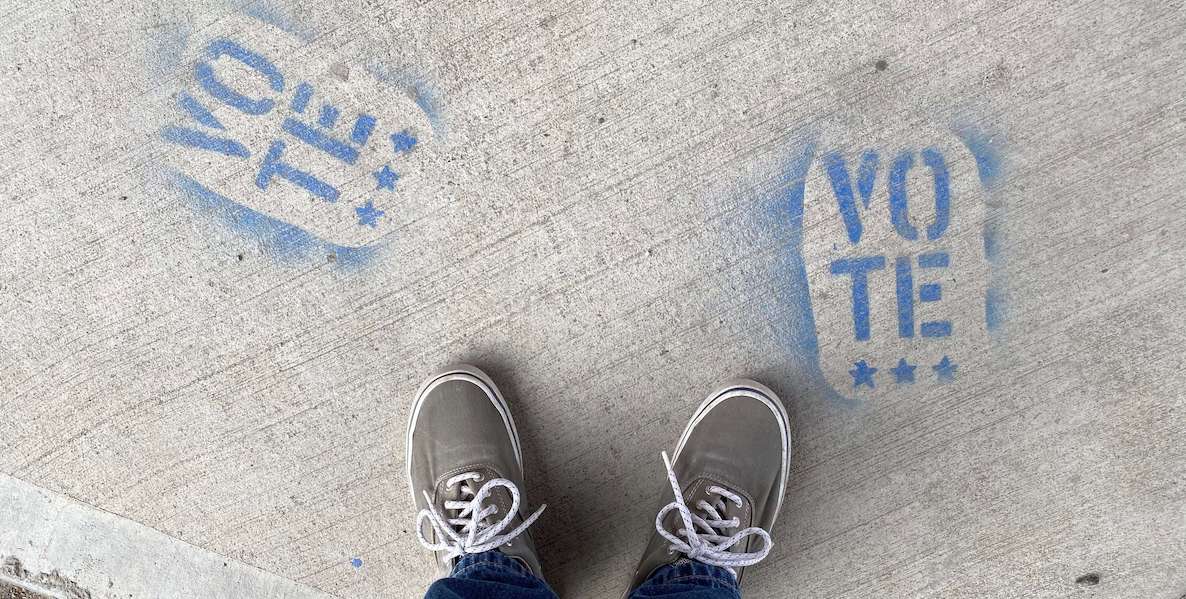In a few weeks, Pennsylvanians will head to the polls in the primary election to judge who is the most qualified to sit on the bench of the state’s highest courts, with several Republican and Democratic candidates filing to run for Supreme, Superior and Commonwealth court openings.
Beyond these statewide contests, voters also will choose their local leaders — everything from school board members to township supervisors to county executives to mayors big and small, elected positions that directly affect how basic services are delivered in our communities.
As important as these decisions are, millions of voters still will have no say.
Pennsylvania is one of only nine states that denies Independent and unaffiliated voters from voting in primary elections, meaning more than 1.1 million voters — more than one out of every seven voters in Pennsylvania — will be denied the right to vote in the May 16 primary.
Given that all taxpayers pay for primary elections, and given how decisions and votes by any of these elected leaders could affect the pocketbook of every Pennsylvanian, it’s hard to imagine a more stark example of taxation without representation, especially in local races. There is no Republican or Democratic way to fill a pothole, for example.
I have long pushed for sensible reforms to expand the spring primary electorate by allowing Independent voters unaffiliated with any political party to vote on candidates. It can be done. A proposal that I backed passed the state Senate, 42-8, with strong bipartisan support in 2019.
But I believe the potential for success is now firmly within our grasp, especially after fractious debates over election procedures and voting rules. Pennsylvanians want a change. That is why I am introducing a similar measure this legislative session to end closed primaries. Now is the time to get this issue across the finish line.
We’re talking about millions of voters
The number of Independent voters has been increasing steadily in every region of the state. It is the fastest-growing segment of voters in Pennsylvania.
By all accounts, this voting bloc does not consist simply of disaffected party voters.
Half of all veterans identify as a political Independent. Imagine trying to explain to a veteran who risked their life for our country that they can’t vote in a primary election because they registered as an Independent.
Moreover, as many as half of young voters — those who inevitably will gain political power with time — identify as Independent. Welcoming these voters into the primary process would not only lead to better government; it’s smart politics.
Voters understand our primary system has a direct impact on the competitiveness of our elections and, ultimately, the extent to which the government can solve complex issues that impact the lives of Pennsylvanians.
Polling data shows that Pennsylvanians from across the political spectrum overwhelmingly support removing this barrier to access to the ballot box.
According to a November 2021 Osage Research Survey, 69 percent of self-identified Trump Republicans and 67 percent of traditional GOP voters say Independents should be allowed to vote in primaries. On the other side, 85 percent of progressive Democrats and 75 percent of centrists Democrats agree.
This should tell you something about the direction Pennsylvania is heading and what voters think about the current state of our electoral politics.
Voters understand our primary system has a direct impact on the competitiveness of our elections and, ultimately, the extent to which the government can solve complex issues that impact the lives of Pennsylvanians.
Closed primary elections no longer work
Let’s be honest: Our primary process, where only registered Democrats and Republicans can vote for candidates in their party, no longer works. When communities are either darker blue or darker red than ever before, polarization is amplified, and candidates have a strong incentive to appeal only to the whims of the party base. They risk their electoral fortunes if they don’t.
That is part of the reason we see fewer and fewer compromises and less willingness among partisan candidates to work across the aisle to address big issues. That is also why Republicans and Democrats overwhelmingly agree that the current system must be scrapped.
The irony of the upcoming primary election is that judicial candidates and those seeking local open seats can cross-file, meaning they can secure a position on both Republican and Democratic ballots — and still, Independent voters can’t participate.
In Pennsylvania politics, thanks to these closed primaries, spring is not a time when hope flowers, but when apathy, cynicism and polarization take root. It is time for our commonwealth to shift, as much of America already has, to a fairer and more responsive primary system, one where every legitimate registered voter has an equal chance to vote in every election.
Sen. Dan Laughlin is the Chairman of the Senate Republican Policy Committee and represents the 49th senatorial district in Erie County. This piece originally ran in Broad + Liberty.
The Citizen welcomes guest commentary from community members who stipulate to the best of their ability that it is fact-based and non-defamatory.
![]() MORE ON THE ELECTION FROM THE CITIZEN
MORE ON THE ELECTION FROM THE CITIZEN
Header photo by Phil Scroggs / Unsplash




